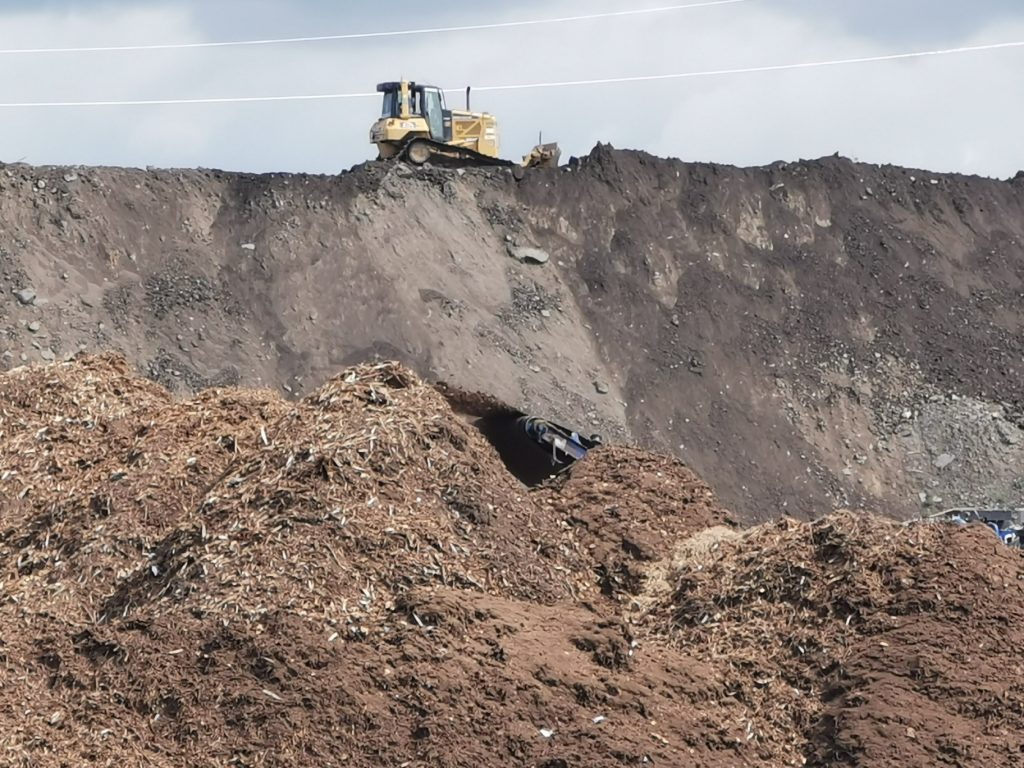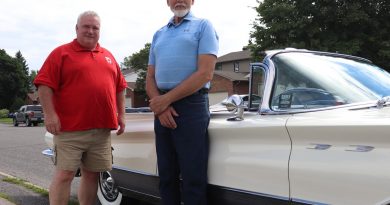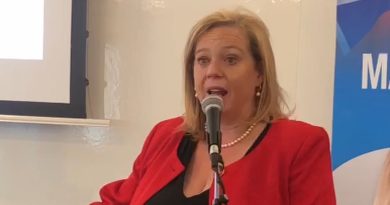Company Claims It Can Extend Life of Trail Rd. Landfill By 150 Years
By Jeff Morris, Barrhaven Independent
An Ottawa company met with the City of Ottawa’s Standing Committee on Environmental Protection, Water and Waste Management Tuesday, and claimed that their waste to energy system can divert waste from landfills to substantially extend their life.
“We can create clean power to reduce environmental emissions,” said Johannes Ziebarth, President and CEO of Landaira. “Our model requires no up front capital from the city.”
The presentation came at a time when the Trail Road Landfill just west of Barrhaven has become a hot topic at City Hall. Staff says the landfill is now at 70 per cent of its capacity, and that it will be full in 15-17 years. Landaira told the committee it can help solve the potential crisis.
“We could extend the life of the Trail Road Landfill by 150 years,” said Alannah Bird of Landaira. “We are also able to do landfill reclamation, so that could push that out even further.”
Ziebarth explained how Landaira’s thermal conversion system works. The molecular structure of hydrocarbons in carbon-based waste is continuously broken down by combining low temperature heating in pressurized containers with controlled, low-volume air circulation to create a completely controlled decomposition process. He outlined a five-step process for this process.
- Waste destined for the landfill is collected and packaged into manageable bales — without sorting, drying, or shredding. Bailing removes the issues of smell and leeching.
- The bales are placed in the patented Landaira thermal conversion processing containers, which are then lowered into an autoclave.
- The thermal conversion is initiated to bring the waste in the autoclave up to 600° C to 800° C at a low pressure of up to 150 PSI to start the decomposition process.
- A very low volume of air is circulated in the autoclave chamber to enable the thermal conversion until the waste is reduced to carbon and ash residue, and any remaining recyclables.
- Waste is reduced to carbon/ashe residue, any recyclables, and a synthetic gas used to generate clean energy.

Committee Chair and Ward 21 Councillor Scott Moffatt first met with Landaira in 2019. He said the company can process 75 tonnes of garbage per day, but added that the city takes in almost 2,000 tonnes of garbage per day at Trail Road. If the city entered a pilot project with Landaira, it woud be for 75 tonnes of garbage per day. Based on the success of the pilot, a contract would likely be for 400 tonnes per day.
“The challenge will be to find someone who can process that kind of volume,” Moffatt said. “Even if we explore an opportunity like this, we would only be talking about a portion of our waste.”
Moffatt also referenced the city’s attempt at a pilot project in plasma gasification with Plasco at the Trail Road Facility.
“We’re talking about multiple technologies offering the site potentially multiple groups to come forward and process waste, rather than the ‘all our eggs in one basket’ approach used 15 years ago.”
In addition to the reduced amount of waste by up to 95 per cent, Landaira also claimed it could help the city achieve its carbon reduction goals at the landfill sites.
“We have extremely clean emissions,” Bird said. “Landaira can reduce the emissions created by up to 99 per cent.”
Not Plasco 2.0
Councillor Allan Hubley finally addressed the elephant in the room and asked Ziebarth directly how his company differed from Plasco.
“Plasco was my client, so I got to know them quite well,” Ziebarth said. “Where we differ is that Plasco was an open, continuous flow gasification using a very high energy output and very high temperatures to eradicate the waste. The big difference for us is that we aren’t attempting the continuous flow. We have a very scientifically controlled environment that we thermally convert the garbage in inside of the autoclave. We’ve certainly kept it to moderate temperatures to do the thermal conversion – just the right temperature to molecularly decompose the components in the garbage. And we keep it at an almost zero oxygen level inside of the autoclave.
“Those two things combined are sort of the secret sauce of why we have such low emissions and why we are so environmentally friendly.”
Ziebarth added that his company’s technology can take garbage straight from the truck with no shredding or drying.
“Plasco had to get things at a certain level,” he said.





